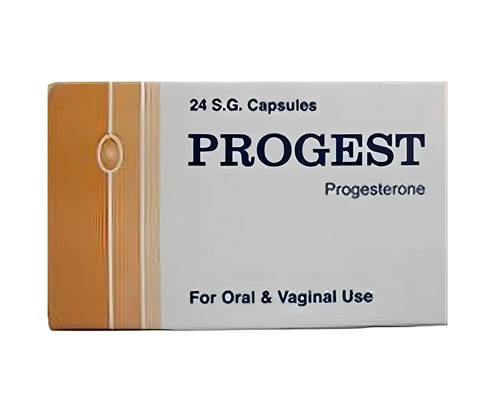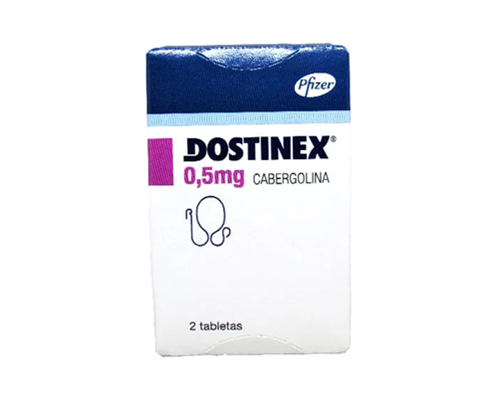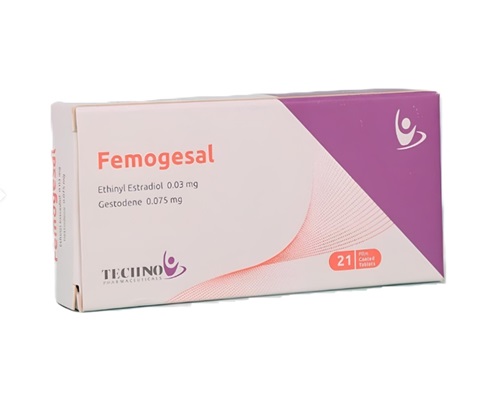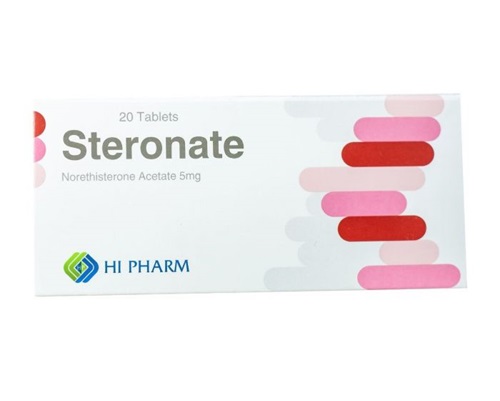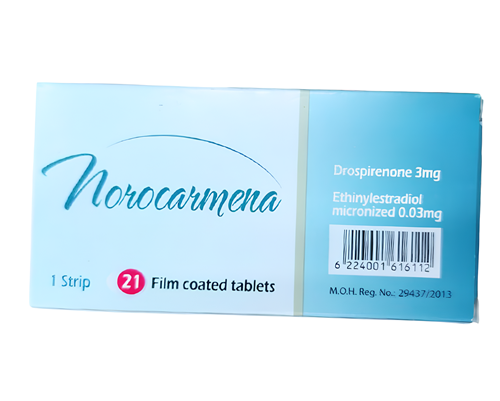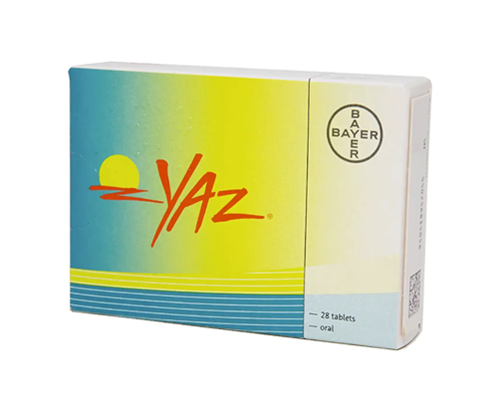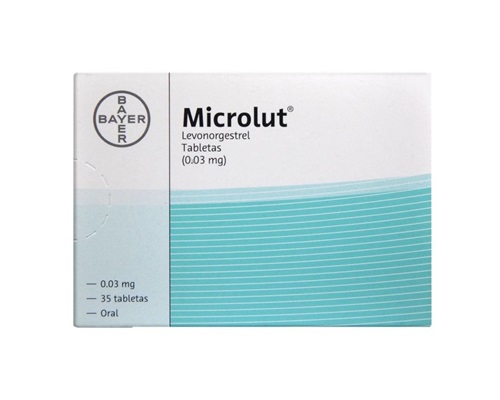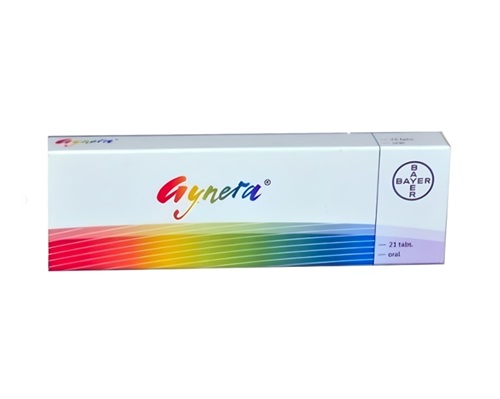Description
Trade name:
Progest
Compound:
Each capsule contains:
Progesterone 100 mg
Auxiliary components:
Gelatin, glycerin, titanium dioxide, sodium ethyl hydroxybenzoate.
Properties:
The active substance of the drug Progest is progesterone, identical to the natural hormone of the corpus luteum of the ovaries. By binding to receptors on the surface of target organ cells, it penetrates the nucleus, where it activates DNA and stimulates RNA synthesis.
Promotes the transition of the uterine mucosa from the proliferative phase caused by the follicular hormone estradiol to the secretory phase. After fertilization, it promotes the transition to the state necessary for the development of the fertilized egg. Reduces the excitability and contractility of the uterine muscles and fallopian tubes. Promotes the formation of normal endometrium. Stimulates the development of the terminal elements of the mammary gland, induces lactation.
By stimulating protein lipase, it increases fat reserves and improves glucose utilization. By increasing the concentration of basal and stimulated insulin, it promotes the accumulation of glycogen in the liver, increases the production of pituitary gonadotropic hormones; reduces azotemia, increases the excretion of nitrogen in the urine.
Indications:
Progesterone deficiency conditions in women:
Oral route of administration:
– threatened abortion or prevention of habitual abortion due to progesterone deficiency;
– infertility due to luteal insufficiency;
-premenstrual syndrome;
-menstrual cycle disorders due to ovulation disorders or anovulation;
– fibrocystic mastopathy;
-menopausal transition period;
-menopausal (replacement) hormone therapy (MHT) in peri- and postmenopause (in combination with estrogen-containing drugs).
Vaginal route of administration:
-HRT in case of progesterone deficiency with non-functioning (absent) ovaries (egg donation);
– prevention (prophylaxis) of premature birth in women at risk (with shortening of the cervix and/or the presence of anamnestic data of premature birth and/or premature rupture of membranes);
– support of the luteal phase during preparation for in vitro fertilization;
– support of the luteal phase in a spontaneous or induced menstrual cycle;
– premature menopause;
– MHT (in combination with estrogen-containing drugs);
– infertility due to luteal insufficiency;
– threatened abortion or prevention of habitual abortion due to progesterone deficiency.
Method of administration and dosage:
Oral route of administration:
The drug is taken orally in the evening before bedtime with water.
In most cases of progesterone deficiency, the daily dose of Progest is 200-300 mg, divided into 2 doses (200 mg in the evening before bedtime and 100 mg in the morning, if necessary).
In case of luteal phase insufficiency (premenstrual syndrome, fibrocystic mastopathy, dysmenorrhea, menopausal transition period), the daily dose of the drug is 200 or 400 mg for 10 days (usually from the 17th to the 26th day of the cycle).
For HRT in perimenopause while taking estrogens, the drug Progest® is prescribed at 200 mg/day for 12 days.
In postmenopausal MHT in continuous mode, Progest® is used in a dose of 100-200 mg from the first day of taking estrogens. The dose is selected individually.
Vaginal route of administration:
The capsules are inserted deep into the vagina.
In cases of threatened abortion or to prevent habitual abortion arising due to progesterone deficiency: 200-400 mg/day in 2 doses daily in the first and second trimesters of pregnancy.
Contraindications:
– deep vein thrombosis, thrombophlebitis;
-thromboembolic disorders (pulmonary embolism, myocardial infarction, stroke), intracranial hemorrhage or a history of these conditions/diseases;
– vaginal bleeding of unknown origin;
-incomplete abortion;
-porphyria;
– established or suspected malignant neoplasms of the mammary glands and genital organs;
– severe liver diseases (including cholestatic jaundice, hepatitis, Dubin-Johnson syndrome, Rotor syndrome, malignant liver tumors) currently or in history;
– age under 18 years (efficacy and safety have not been established);
– breastfeeding period;
– hypersensitivity to progesterone or any of the excipients of the drug.
With caution: cardiovascular diseases, arterial hypertension, chronic renal failure, diabetes mellitus, bronchial asthma, epilepsy, migraine, depression, hyperlipoproteinemia, mild to moderate liver dysfunction, photosensitivity; II and III trimesters of pregnancy.
Precautions:
The drug should not be used for contraception.
The drug should not be taken with food, since food intake increases the bioavailability of progesterone.
The drug should be taken with caution in patients with diseases and conditions that may be aggravated by fluid retention (arterial hypertension, cardiovascular diseases, chronic renal failure, epilepsy, migraine, bronchial asthma); in patients with diabetes mellitus; mild to moderate liver dysfunction; photosensitivity.
Side effects:
Menstrual irregularities
Amenorrhea
Acyclic bleeding
From the mental side
Depression
From the nervous system:
Headache
Drowsiness
Transient dizziness
From the gastrointestinal tract:
Bloating
For vaginal use:
There have been reports of isolated cases of local intolerance reactions to the components of the drug (in particular, soy lecithin) in the form of hyperemia of the vaginal mucosa, burning, itching, and oily discharge.
Storage method:
At a temperature not exceeding 30 degrees. In a dry place.

